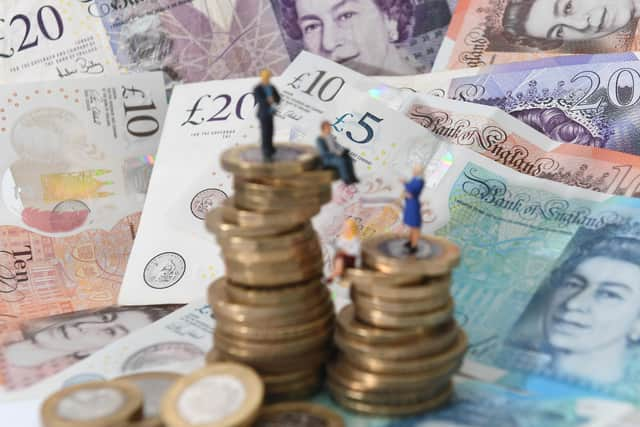Grocery price inflation hits record 14.7 per cent with ‘no peak in sight’
Sales of supermarket own-label products jumped again by 10.3 per cent over the latest four weeks and the cheapest value ranges grew by 42 per cent as shoppers sought to manage their budgets, according to Kantar.
Just over a quarter of households (27 per cent) say they are struggling financially – double the figure recorded last November, the research firm said.
Advertisement
Hide AdAdvertisement
Hide AdFraser McKevitt, head of retail and consumer insight at Kantar, said: “Yet again, we have a new record high figure for grocery price inflation and it’s too early right now to call the top.
“Consumers face a £682 jump in their annual grocery bill if they continue to buy the same items, and just over a quarter of all households now say they’re struggling financially, which is double the proportion we recorded last November.
“Nine in 10 of this group say higher food and drink prices are a major concern, second only to energy bills, so it’s clear just how much grocery inflation is hitting people’s wallets and adding to their domestic worries.”
Some consumers found light relief at Halloween, and just over one in 10 households bought a pumpkin in October, although sales were down compared with last year.
Advertisement
Hide AdAdvertisement
Hide AdSmaller numbers of people stocked the cupboards for Christmas in October, preferring to wait until later in the year.


Mr McKevitt said: “This time last year two million consumers had already bought their festive Christmas pudding. We’ve seen 32 per cent fewer shoppers doing that this time around, suggesting people are not trying to spread the cost of their purchasing – at least not in October.”
Aldi was the fastest growing retailer in the latest period, increasing its sales by 22.7 per cent year on year to gain 9.2 per cent market share, while Lidl boosted sales by 21.5 per cent to take its market share to a new record of 7.2 per cent.
Asda again led the traditional Big Four supermarkets with sales growing by 5.3 per cent to maintain an overall market share of 14.3 per cent.
Advertisement
Hide AdAdvertisement
Hide AdMr McKevitt said: “With economic forecasters warning of a potential recession, it’s worth reflecting on how much the grocery landscape has changed since the 2008 financial crash. We’ve seen a rise in the market share of the discounters Aldi and Lidl, which together now stands at 16.4 per cent, versus 4.4 per cent 14 years ago.”